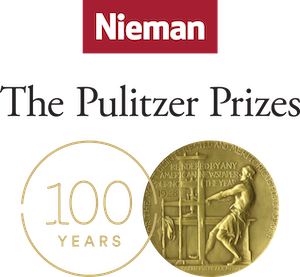Saturday, September 10, 2016
| Opening Night | An Evening with Wynton Marsalis 7:30 p.m. Wynton Marsalis reflects on the theme “Power: Accountability and Abuse” during an evening of music and discussion Welcome by the Nieman Foundation curator, Ann Marie Lipinski Introduction by Harvard University President Drew Gilpin Faust Wynton Marsalis is an internationally acclaimed musician, composer, bandleader, and educator. He made history in 1997 when his oratorio “Blood on the Fields” became the first jazz composition to win the Pulitzer Prize for Music. He has made more than 80 jazz and classical recordings, which have won him nine Grammy awards and sold over 7 million copies worldwide. He serves as the managing and artistic director of Jazz at Lincoln Center and director of Jazz Studies at the Juilliard School in New York City. @wyntonmarsalis Wynton Marsalis, trumpet Walter Blanding, saxophone James Chirillo, guitar Ricky Gordon, percussion Carlos Henriquez, bass Ali Jackson, drums Dan Nimmer, piano |
Sunday, September 11, 2016
Mary Jordan emcees a day of performances, readings, talks, and conversations with Pulitzer winners whose work speaks to the theme, “Power: Accountability and Abuse.”
| Act I | POWER IN THE HOME 10:00 a.m. – 12:00 p.m.
12:00 p.m. – 1:30 p.m. In addition to the eateries in Harvard Square, there will be food trucks on the plaza adjacent to Harvard Yard |
| Act II | POWER IN THE NATION 1:30 – 3:30 p.m.
Robert Caro recalls the incident, when he was working on “The Power Broker,” that made him realize that in writing about power, he would have to do so through the lens of the powerless Donald Graham reads a passage from “Personal History,” the Pulitzer-winning autobiography by his mother, Katharine Graham, about her decision while publisher of The Washington Post to publish the Pentagon Papers Dean Baquet talks with Laura Poitras and Bob Woodward about their work to expose two of the most stunning abuses of government power in American history A videotaped conversation with “Hamilton” writer and star Lin-Manuel Miranda about finding your voice as a writer and the role of the playwright in addressing history 3:30 p.m.– 4:30 p.m. |
| Act III | POWER IN THE WORLD 4:30 – 6:30 p.m.
6:30 p.m. – 8:30 p.m. |
| Finale | Evening Concert: “On the Transmigration of Souls” by John Adams 8:30 – 9:30 p.m. A performance of John Adams’ “On the Transmigration of Souls,” winner of the 2003 Pulitzer for Music, to mark the 15th anniversary of the 9/11 attacks. It was commissioned by the New York Philharmonic to commemorate the first anniversary of the terrorist attacks. Adams has described the composition as a “memory space.” It incorporates phrases from New York Times stories and missing-persons signs that families of victims posted near Ground Zero. Conducted by Federico Cortese of the Harvard-Radcliffe Orchestra with Tanglewood Festival Chorus, guest chorus conductor Lidiya Yankovskaya, and Voices Boston, artistic director Steven Lipsitt John Adams is a composer and conductor whose works are among the most performed of all contemporary classical music. His stage works include the operas “Nixon in China” and “The Death of Klinghoffer.” Conducting engagements in recent and coming seasons include the Concertgebouw Orchestra, Berlin Philharmonic, and the London Symphony Orchestra. He is author of the autobiography “Hallelujah Junction” and creative chair of the Los Angeles Philharmonic. @HellTweet |
*Please note: Due to the technical requirements of this event, the house must be cleared after each session. Patrons may not leave belongings in the theater. A new ticket is needed for re-entry.
